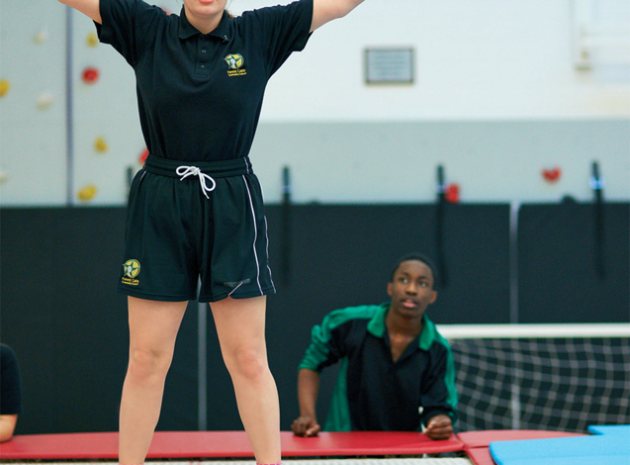A passion for action
Getting ‘non-sporty’ teenagers excited about PE can seem an impossible task, but it's a vital one, says Baroness Tanni Grey-Thompson, who recently chaired a review group that recommended it be made a core subject in Wales. TS caught up with the British Paralympian to find out more...
What was your own experience of sport and PE at secondary school like? Mixed, is probably the best way to describe it. I started what would now be called Year 7 in 1981, and at that time there wasn't a clear policy of inclusive education. My father had to battle to get me into a mainstream school at all – using the Warnock Report in the end, and arguing my right to be educated in the environment that was best for my educational needs. However, the school I ended up attending shared a site with a special school, and it was simply assumed that I would have my PE there. At first, that’s what happened, but of course, I didn't know anyone at the special school, and like any teenager, I wanted to be with my friends. Sometimes I’d watch their lessons, and it was while they were swimming one day that Mrs Cogbill, the teacher, asked me whether I could swim. When I said yes, she told me to join the class the following week, so from then on I did PE with my classmates where possible, sometimes with the special school... and sometimes not at all.
For my peers, though, PE was pretty good. We were lucky, with good facilities and some enthusiastic teachers – but even then, there were those who enjoyed it, and those who didn’t.
Surely children will always be divided between those who enjoy PE and those who don’t? Yes, but it's the job of schools (and parents, too) to ensure that they’re not turned off physical activity unnecessarily. Take girls, for instance. As early as nursery, you'll often find the boys outside kicking a ball or climbing, and the girls playing in a less physical way, not being encouraged to join in. Take this further, and by the time they start secondary school, where they are suddenly faced with a much wider and more interesting choice of sports and activities, they just haven’t had the chance to develop the basic physical literacy needed for them to participate in an enjoyable way. So they think they ‘don't like sport’ or they’re ‘not good at PE’, and they find any excuse to get out of it.
So you think early intervention is important? Absolutely. And secondary schools can play a really important part, as they often have the necessary facilities and specialist teachers. I’d like to see a lot more local sharing of these resources. It’s not about raising a nation of Olympians – it’s about lifelong health and fitness, for everyone. There’s an obesity epidemic at the moment, and schools could really help to tackle this, with properly delivered PE at every level. I know it’s difficult, which is why we haven’t got it right yet, but we have to keep trying (and investing) until we get something that works, and then stick with it, rather than constantly changing policies.
What can secondary schools do to reengage students with their physical education? I think we should place much less emphasis on measuring performance; teachers and young people are under so much pressure and it doesn’t help if people who haven’t ever spent time teaching or coaching start telling them that every student should be able to do x number of star jumps, or triumph on the hockey pitch. We have to be aware of how body conscious teenagers can be, and make sure they are comfortable in what they are supposed to wear for PE and the things they are asked to do. And as far as possible, we should try and find out what they like doing, and structure a programme around that. When I was 12 or 13, no one would have said that I had any kind of sporting talent. It wasn’t until I was 16, and training hard, that my abilities properly developed. If an observant and enthusiastic teacher hadn’t thought to ask me about swimming, and make the effort to get me involved with my peers, then who knows how differently my life might have turned out?










